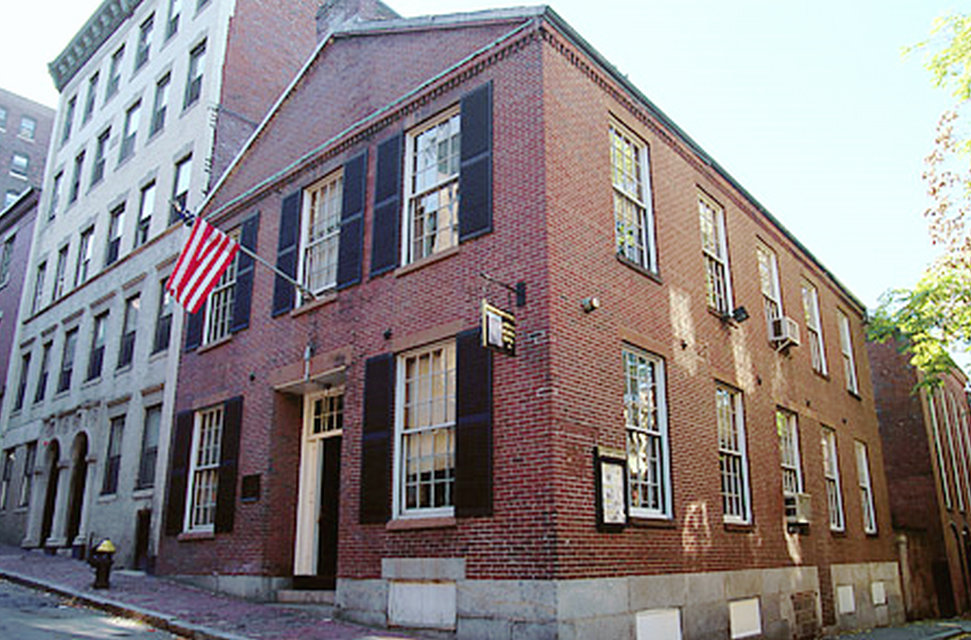The Museum of African American History in Boston and Nantucket is the largest institution of its kind in New England and is dedicated to sharing the rich legacy of African American accomplishments. For nearly five decades, the Museum’s education programs, exhibits and events have interpreted the economic, literary, educational, political, social, and cultural enterprises of the black communities of Boston and Nantucket from the colonial period through the nineteenth century.
The African Meeting House, also known variously as First African Baptist Church, First Independent Baptist Church and the Belknap Street Church, was built in 1806 and is now the oldest black church edifice still standing in the United States. It is located in the Beacon Hill neighborhood of Boston, Massachusetts, adjacent to the African American Abiel Smith School. It is a National Historic Landmark.
The Museum is the proud steward of four historic sites and two Black Heritage Trails® in Boston and Nantucket. The Museum’s mission is to preserve, conserve, and accurately interpret the contributions of people of African descent in New England from the colonial period through the nineteenth century and those who found common cause with them in pursuit of freedom and justice.
The images and documents in this collection are part of the collections of the Museum of African American History, Boston and Nantucket.
The historical site is located on Beacon Hill, a neighborhood just north of the Boston Common. The site was designated in 1980 to “preserve and commemorate original buildings that housed the nineteenth-century free African-American community on Beacon Hill.” That year President Jimmy Carter signed bills authorizing this and the Martin Luther King, Jr. National Historic Site, as well as one to establish the National Afro-American Museum and Cultural Center in Wilberforce, Ohio.
Boston’s first African residents arrived as slaves in 1638 with early colonists. Over time, more of their descendants were born free to white mothers; in other cases slaveholders freed slaves for service. After the American Revolutionary War, Massachusetts effectively abolished slavery by the terms of its new constitution. By the 1790 census, no slaves were recorded in Massachusetts. African Americans became activists in the abolition movement, also working to gain racial equality and educational parity with whites. They engaged in political processes to meet their objectives.
Before the Civil War, more than one half of the 2,000 African Americans in Boston lived on the north slope of Beacon Hill; blacks also lived in the West End north of Cambridge Street, and in the North End. These areas gradually were occupied by new groups of immigrants after African Americans moved to southern areas of Boston. (The North End became a center of Italian immigrants in the late 19th and early 20th centuries.)
The historic site is one of 20 National Park Foundation sites featuring African-American history.
Most sites on the trail are still used as residences and are not open to the public, except the African Meeting House, Abiel Smith School, and the 54th Regiment Memorial.
Park rangers provide free, two-hour guided tours of the trail during the summer; off-season tours are available by reservation. A self-guided trail map and information is available online, at the Boston African American Historic Site, the Boston National Historic Site center, and at the Abiel Smith School.
